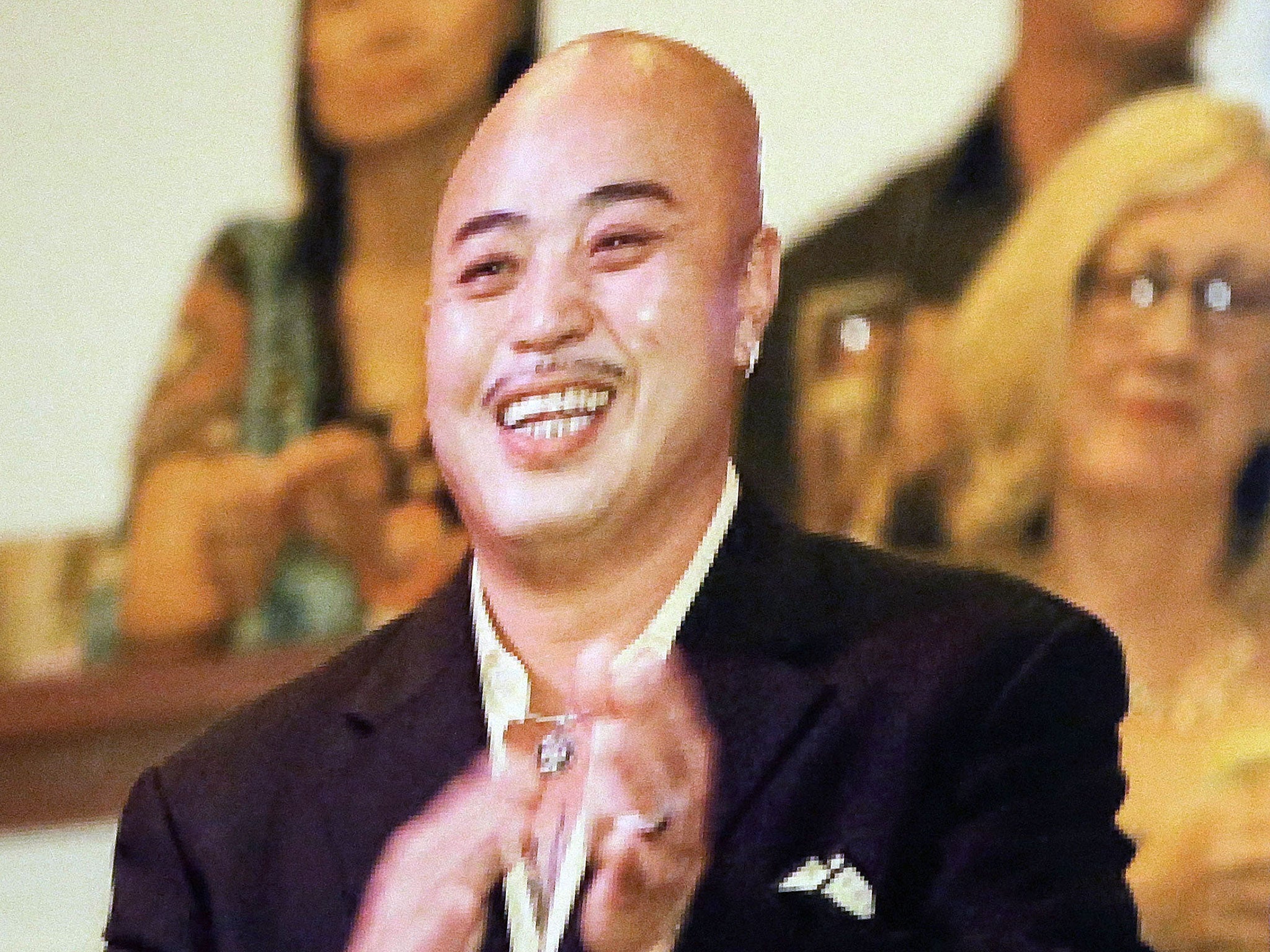San Francisco: The trial that blows the lid off the city's Chinese underworld
FBI claims Raymond Chow ran the Ghee Kung Tong as a violent criminal gang, including ordering ‘hits’ on rivals

One evening in 2011, several men met in a room above a restaurant in San Francisco’s Chinatown to decide who would be the next boss of a gang known as the Hop Sing Tong. Among them, it is alleged, was Raymond “Shrimp Boy” Chow – the leader of the Ghee Kung Tong, an affiliated organisation – and his friend and bodyguard, Kongphet “Fat Joe” Chanthavong.
Mr Chanthavong, 36, took the stand in a San Francisco courtroom last week to testify that Mr Chow attended the meeting “to prevent some guy named Jimmy from being elected.” Later that night, over “a couple of bumps of coke” at a nearby karaoke bar, Shrimp Boy allegedly told his underling: “Somebody needs to take care of Jimmy.” Fat Joe baulked at the suggestion, he said.
Two years later, Jim Tat Kong, aka “Jimmy”, a Hop Sing Tong member – was found shot dead alongside his wife in a car in northern California. Their deaths are now being blamed on Mr Chow, 56, who went on trial this week accused of manifold criminal activities, including ordering the murder of the man he would replace as the so-called “dragonhead” of the Ghee Kung Tong.
Mr Chanthavong has pleaded guilty to racketeering charges and is testifying for the prosecution, which claims Mr Chow ran the Tong as a violent criminal organisation. But the defendant’s lawyers say that over the course of a five-year federal sting operation, it was FBI agents who instigated most of that criminal activity, in the hope of involving and implicating Mr Chow.
The defendant was one of 29 people arrested last year in a gangland sweep, among them Leland Yee, a former California state senator, who later pleaded guilty to racketeering.
The FBI investigation of Mr Chow was sparked by the murder of Allen Leung, the previous Ghee Kung Tong dragonhead, who was shot dead by a masked gunman at his import-export business in February 2006, with his wife looking on.
On 10 November, Mr Chanthavong told the jury he had also heard Mr Chow delivering an order that he believed led to Mr Leung’s death, which the state prosecutor described in his opening statement as “a cold-blooded, gang-style hit, like something straight out of The Godfather.”
At Mr Leung’s funeral, Mr Chow wore a white suit, which he maintains was a sign of respect (it is common to wear white at funerals in China). The authorities, however, saw it as evidence of his involvement in the killing. The sting against Mr Chow, known as “Operation White Suit”, was based on that misconception, his lawyers said in a court filing. “The uninformed FBI interpreted Raymond’s choice of suit colour to be a ‘rise to power’, thereby launching a decade of undercover operations and prosecution against Chow,” they wrote.
During the trial, which is expected to last at least two months, defence lawyer Tony Serra intends to focus on the conduct of an undercover agent who posed as a mobster named David Jordan. Known to Mr Chow and his Tong colleagues as “Dave”, he allegedly plied Shrimp Boy with alcohol as he tried to convince him to partake in criminal activity. “After failing at legitimately snagging Chow, [the agent] independently engaged in criminal acts with people who knew Raymond,” Mr Serra claims.
As for Fat Joe, Mr Chow’s lawyers have argued that he and another former Ghee Kung Tong member, Andy Li, are testifying against their old boss to win leniency in their own cases. The two men are incarcerated in the same Oakland jail, where the defence claims they have cooked up their testimony together.
But Mr Chanthavong says he is co-operating with the prosecution because he felt betrayed by Mr Chow, after hearing FBI wiretap tapes in which his former friend said he suspected “Dave” of being an undercover agent, but said he would allow Mr Chanthavong and Mr Li to go on dealing with him. “I felt like I was getting thrown under the bus; that I was expendable,” Mr Chanthavong told the jury.
The friendship between the men allegedly came to an end in 2013, when Mr Chow and Mr Li exchanged drunken blows outside a bar. According to Mr Chanthavong, Mr Li said he remained loyal to Mr Chow, who replied: “If you were loyal, you would have done something about Jimmy”.
A gangland celebrity, Mr Chow was born in Hong Kong in 1960 and became a violent gang member even before he moved to San Francisco as a teenager, where his diminutive stature earned him the nickname “Shrimp Boy”. During his criminal career, he faced charges including robbery, assault, prostitution, drug trafficking, money laundering and “mayhem”.
The first of three prison spells began in 1978, when he was convicted of robbery. Yet Mr Chow insists that his life of crime came to an end in 2000, when he testified against former gang associates in return for a reduced sentence. He was released in 2003 and claimed to have changed his ways, even as he rose to the leadership of the Ghee Kung Tong.
Join our commenting forum
Join thought-provoking conversations, follow other Independent readers and see their replies
Comments
Bookmark popover
Removed from bookmarks